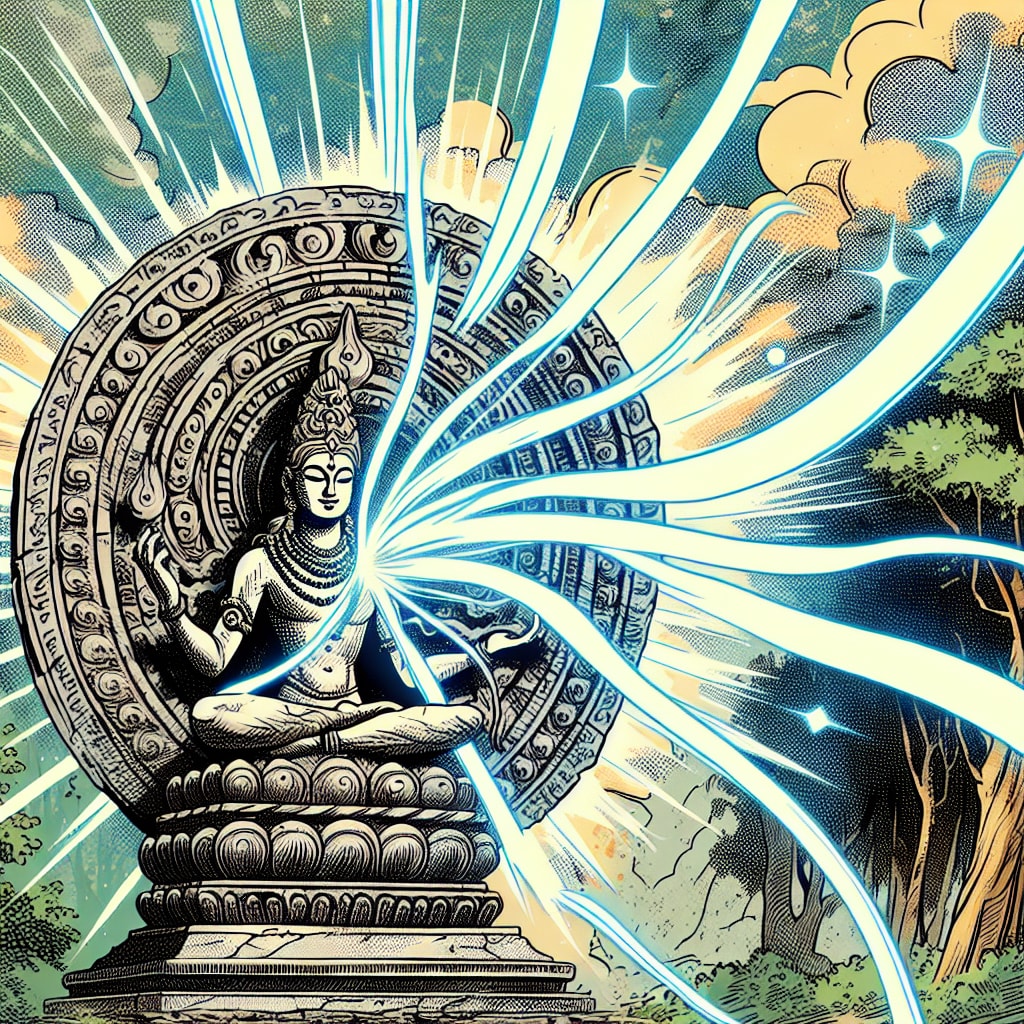In the vast oeuvre of the Mahabharata, Bhagavad Gita, and Sanskrit literature as a whole, "Mantra" holds a significant place. Mantra, a Sanskrit term, is often understood as a sacred utterance, a sound, syllable, word, or group of words possessed of unique metaphysical impact. The term is derived from two Sanskrit roots: 'man,' referring to mind, and 'tra,' suggesting tools or instruments. Thus, a mantra is considered a tool that has the power to calibrate and control the mind.
In the grand epic of the Mahabharata, mantras are invoked in numerous occasions and contexts, primarily to evoke divine powers or as an important part of rituals and ceremonies. They underscore the importance of words and sounds in influencing the psyche and the surrounding environment.
Within the Bhagavad Gita, while mantras are not explicitly detailed, the underlying philosophy aligns with their purpose. In Chapter 10, Verse 25, Krishna, representing the divine, claims to be the "Gāyatrī" among mantras, suggesting the import and reverential status of the mantra. The concept of mantra in the Gita can be seen more broadly in the context of Nama Japa, or the repetitive chanting of the names of the divine. This practice is known to lead towards a focused mind, paving the path towards self-realization and enlightenment.
Across Sanskrit literature, mantras are often positioned as a means of communication with the divine realm. They serve as a profound spiritual tool, offered as an aid to meditation, to bring about mental clarity, peace, and transformation. Mantras are used not only in religious rituals but also in daily life as a means of healing, protection, and manifestation of desires.
In essence, the concept of 'Mantra' across the Mahabharata, Bhagavad Gita, and Sanskrit literature, functions as the psyche's sacred instrument aimed at controlling, influencing, or transmuting thought forms and energies, ultimately leading towards greater consciousness and spiritual enlightenment.

